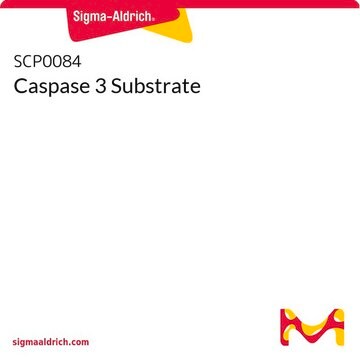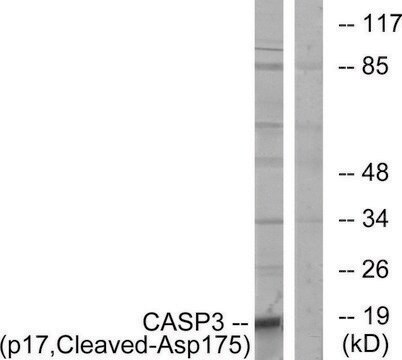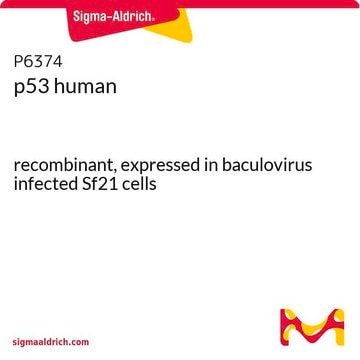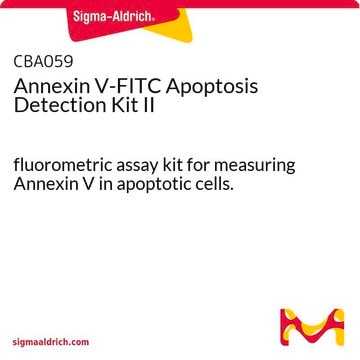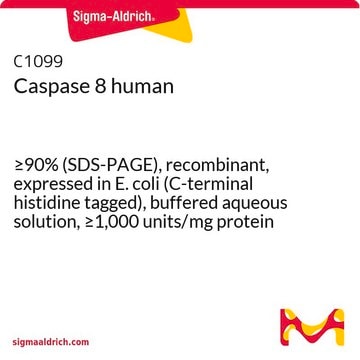C1224
Caspase 3 human
≥90% (SDS-PAGE), recombinant, expressed in E. coli (C-terminal histidine-tagged), buffered aqueous glycerol solution, ≥1.0 units/mg protein
Synonym(s):
Apopain, CPP32, Yama
About This Item
Recommended Products
recombinant
expressed in E. coli (C-terminal histidine-tagged)
Quality Level
Assay
≥90% (SDS-PAGE)
form
buffered aqueous glycerol solution
specific activity
≥1.0 units/mg protein
mol wt
~30 kDa
UniProt accession no.
shipped in
dry ice
storage temp.
−70°C
Gene Information
human ... CASP3(836)
Looking for similar products? Visit Product Comparison Guide
General description
Human recombinant C-terminal histidine tagged caspase 3 is a fully active protein consisting of 17 kDa and 13.5 kDa subunits; the 13.5 kDa subunit contains the histidine tag.
Application
This product may also be used in cell-based apoptosis assay.
Biochem/physiol Actions
Unit Definition
Physical form
Preparation Note
antibody
inhibitor
related product
substrate
Storage Class Code
10 - Combustible liquids
WGK
WGK 1
Flash Point(F)
Not applicable
Flash Point(C)
Not applicable
Certificates of Analysis (COA)
Search for Certificates of Analysis (COA) by entering the products Lot/Batch Number. Lot and Batch Numbers can be found on a product’s label following the words ‘Lot’ or ‘Batch’.
Already Own This Product?
Find documentation for the products that you have recently purchased in the Document Library.
Our team of scientists has experience in all areas of research including Life Science, Material Science, Chemical Synthesis, Chromatography, Analytical and many others.
Contact Technical Service